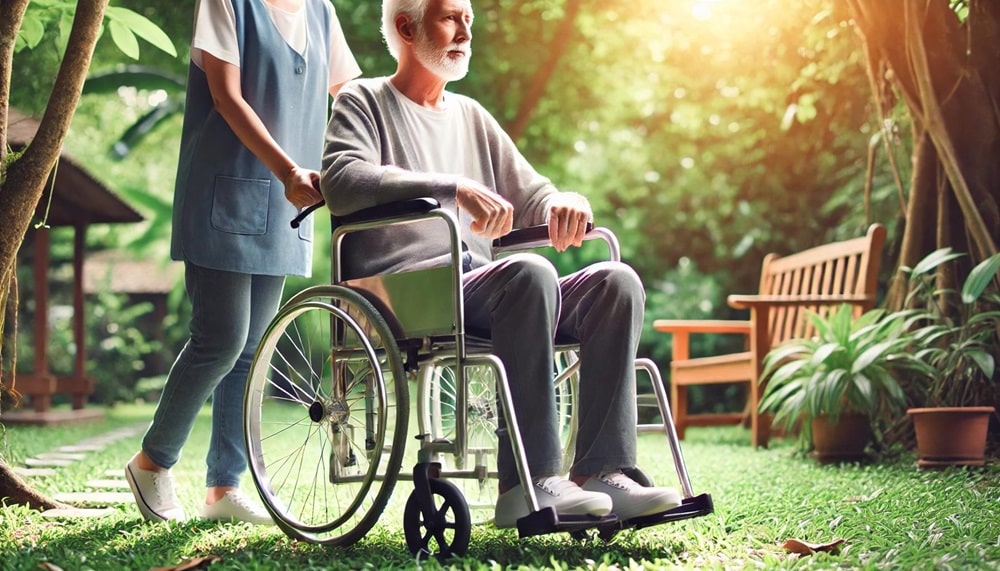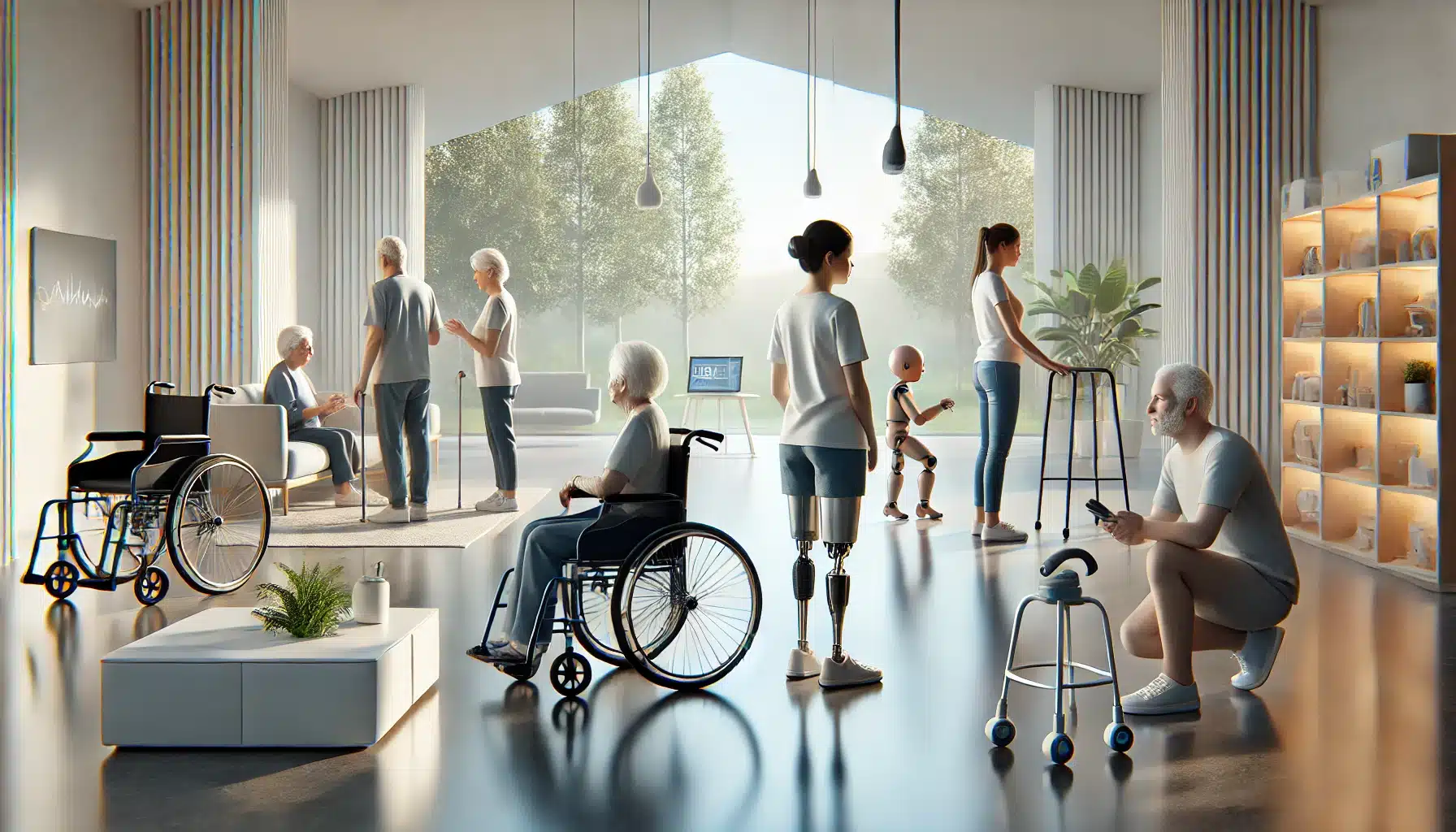Many people in Israel are unaware of the full range of benefits and subsidies they are entitled to when it comes to Medical Accessories in Israel and assistive products. As a result, individuals often leave significant amounts of money and benefits “on the table” or pay out of pocket for products that could have been covered by government programs or insurance.
A 2019 study by the Taub Center for Social Policy Studies in Israel found that nearly 30% of eligible individuals do not fully utilize their healthcare benefits due to lack of awareness or difficulty navigating the system. Furthermore, a 2020 report by the Israeli Ministry of Health estimated that up to 40% of seniors and disabled individuals may be missing out on some form of assistance they’re entitled to, potentially leaving thousands of shekels unclaimed.
This comprehensive guide aims to help senior citizens, people with disabilities, soldiers, and war victims understand and access the resources available to them, potentially saving thousands of shekels annually and improving their quality of life.
Most Sought-After Medical Accessories in Israel
The following medical Accessories in Israel are commonly subsidized for seniors, disabled individuals, and veterans in Israel:
- Hearing aids: Critical for individuals with hearing loss.
- Mobility devices: Wheelchairs, walkers, scooters, and crutches.
- Prosthetics and orthotics: Prosthetic limbs and orthopedic braces.
- Vision aids: Magnifiers and specialized glasses.
- Communication devices: Tools for speech-impaired individuals.
- Rehabilitation equipment: Electric beds, lifts, and pressure-relief mattresses.
Eligibility Criteria
Eligible Groups:
The following groups are typically eligible for subsidized Medical Accessories in Israel:
- Senior citizens (usually 65+): Individuals who have reached retirement age and may require additional medical support. Those registered with the National Insurance Institute (Bituach Leumi) are often eligible for assistance with products like hearing aids, wheelchairs, and other assistive devices
- Individuals with recognized permanent disabilities: Those with long-term physical, mental, intellectual, or sensory impairments that affect their daily activities. Eligibility is typically verified by medical documentation and government certifications from the Ministry of Health or National Insurance.
- Soldiers and veterans (injured during service): Current and former military personnel who sustained injuries while serving in the Israel Defense Forces (IDF). They are often eligible for full assistance, including advanced rehabilitation equipment.
- Victims of war and terror attacks: Civilians who have been injured or affected by acts of war or terrorism may receive special aid through various government programs.
Who is Not Eligible (covered under other programs) to Medical Accessories in Israel:
While many groups receive comprehensive coverage, certain individuals are covered by alternative programs. These include:
- Work accident victims: Those injured at work are typically covered under work accident insurance, and should apply for benefits via Bituach Leumi’s work injury program (work injury benefits).
- Disabled IDF veterans: Veterans with service-related disabilities are covered by the Ministry of Defense’s Rehabilitation Division (Rehabilitation Division).
- Holocaust survivors: Individuals receiving compensation through the Ministry of Finance for Holocaust-related disabilities, including allowances for camp or ghetto survivors, may not be eligible for additional subsidies under other programs.
Each of these specialized groups has access to specific programs that provide benefits tailored to their circumstances.
Organizations Providing Subsidies and Funding Assistance
The amount of funding available for assistive products varies depending on the program and individual eligibility. Below are state-mandated health services, non-profits, and government agencies that provide subsidies for Medical Accessories in Israel.
State-Mandated Health Funds (HMOs):
Supplementary health insurance plans within Israel’s health funds (Clalit, Maccabi, Meuhedet, Leumit) often reimburse a large portion of costs, with up to 75% coverage for devices like hearing aids and mobility aids, though caps apply to the reimbursement amounts.
- Clalit Health Services (website)
- Example: For hearing aids, a referral from a Clalit doctor is needed. Reimbursement of up to 75% of the cost (max NIS 1,100 per year) can be applied for after purchasing from an approved list.
- Maccabi Healthcare Services (website)
- Example: Mobility aids like crutches or walkers can be partially subsidized after providing documentation from a specialist.
- Meuhedet Health Services (website)
- Example: Members can apply for prosthetic limbs with 80% coverage, depending on their health plan tier.
- Leumit Health Services (website)
- Example: Vision aids such as specialized glasses are covered for seniors and those with visual impairments.
Non-Profit Organizations:
- Yad Sarah (website) – Provides free or low-cost equipment loans (e.g., wheelchairs, oxygen machines). Simple application through any of their 100 branches.
- Milbat (website) – Specializes in technological solutions for disabled individuals. Offers customization based on individual needs after consultation.
- Ezer Mizion (website) – Provides medical equipment, specifically for low-income families. Application is done through social workers and requires medical records.
- Ezra Lemarpeh (website) – Offers rehabilitation equipment and loans. Applications are evaluated based on medical necessity.
- Ilan – Israel Foundation for Handicapped Children (website) – Assists children and young adults with physical disabilities in obtaining accessories like mobility devices.
Government Agencies:
- Ministry of Health (website) – Offers up to 75-90% funding for necessary devices like mobility aids, prosthetics, and specialized equipment. The funding is determined by the type of product and the individual’s financial and medical status.
- National Insurance Institute (Bituach Leumi) (website) – For home-based care and medical equipment, subsidies can range from partial to full coverage depending on the type of equipment and financial status of the applicant. For instance, those receiving a Gmila B’Kesef (cash benefit) may apply their benefit towards purchasing assistive products.
- Ministry of Defense (website) – Covers 100% of rehabilitation equipment costs for soldiers and veterans. Requires medical evaluation through the Rehabilitation Division.
Application Processes: Specific Examples
Clalit Health Services (Hearing Aids):
- Obtain a referral from a Clalit doctor.
- Purchase the hearing aid from a pre-approved supplier.
- Submit the original invoice and doctor’s referral for reimbursement.
- Receive up to 75% reimbursement, capped at NIS 1,100 annually.
Ministry of Health (Mobility Devices):
- Get a specialist’s recommendation.
- Submit documents through your local health office.
- Choose a supplier from an approved list.
- The equipment will be inspected after delivery to ensure it meets your needs.
Yad Sarah (Wheelchairs):
- Visit a Yad Sarah branch with ID and medical documentation.
- Loan a wheelchair for a limited period, with the option to extend.

Funding Assistance
- Bituach Leumi offers Gmila B’Kesef (Cash Benefit) to cover home-based care and Medical Accessories in Israel. The amount varies based on the level of assistance required, ranging from approximately 1,000 to 5,000 NIS per month for severe cases.
- Ministry of Health provides up to 75-90% coverage for necessary devices like mobility aids, prosthetics, and specialized equipment. For those with financial difficulties, coverage can be up to 90%. For example, they may cover up to 4,000 NIS for a standard wheelchair or up to 20,000 NIS for a high-end electric wheelchair, depending on the individual’s needs and financial situation.
- Private Insurance may help reduce co-payment costs for certain accessories. Coverage can range from 50% to 80% of the cost, depending on the policy and the specific accessory.
The exact amount of funding varies greatly depending on the individual’s circumstances, the specific accessory needed, and the organization providing the assistance. It’s crucial to check with each relevant organization for the most up-to-date information on funding amounts.
Role of Insurance
In Israel, supplementary health insurance through your HMO can significantly reduce out-of-pocket expenses for Medical Accessories in Israel. Here’s how to maximize your insurance benefits:
- Review your policy: Carefully read your supplementary insurance policy to understand what’s covered and to what extent.
- Pre-approval: Many insurers require pre-approval for coverage of Medical Accessories in Israel. Contact your insurance provider before making a purchase to ensure you follow the correct procedures.
- Network providers: Some insurers have agreements with specific suppliers. Using these network providers can often result in higher coverage or lower co-payments.
- Combine benefits: In some cases, you can combine benefits from your HMO’s supplementary insurance with government subsidies to minimize your out-of-pocket expenses.
- Annual limits: Be aware of any annual limits on coverage for Medical Accessories in Israel. Plan your purchases accordingly to maximize your benefits.
- Appeals process: If a claim is denied, don’t hesitate to appeal the decision. Provide additional medical documentation to support your need for the accessory.
- Waiting periods: Some plans may require a waiting period before benefits can be utilized. Be sure to understand these restrictions when planning your purchases.
Many insurers offer extended coverage for high-cost items like electric beds, hearing aids, and customized prosthetics. For example, some policies may cover up to 80% of the cost of hearing aids every three years, or provide allowances of 10,000-20,000 NIS for major mobility devices.
Some private insurance plans go beyond what state-provided supplementary insurance offers, covering advanced assistive technologies like motorized wheelchairs or specialized communication devices for people with disabilities.
Remember, insurance policies can be complex. Don’t hesitate to ask your insurance provider for clarification or seek assistance from patient advocacy organizations.
Summary Table of Key Organizations
| Organization | Pros | Cons | Application Process Summary |
|---|---|---|---|
| Clalit Health | Extensive coverage; easy application | Co-payment required for most accessories | Doctor referral → Purchase → Reimbursement request |
| Maccabi Health | Competitive rates; good customer service | Limited to HMO network; some co-payments | Specialist referral → Submit documents for subsidy |
| Yad Sarah | Free/low-cost equipment loans; large network | Equipment must be returned after use | Visit branch with medical documents → Loan for limited time |
| Ezra Lemarpeh | Good range of rehabilitation equipment | Resources may be limited for some items | Contact directly with medical documentation |
| Milbat | Customized technological solutions | Consultation required; can take time | Apply online → Assessment → Customization and delivery |
| Ministry of Health | Wide range of devices covered | Process can be bureaucratic; long approval times | Specialist recommendation → Local health office → Approval |


